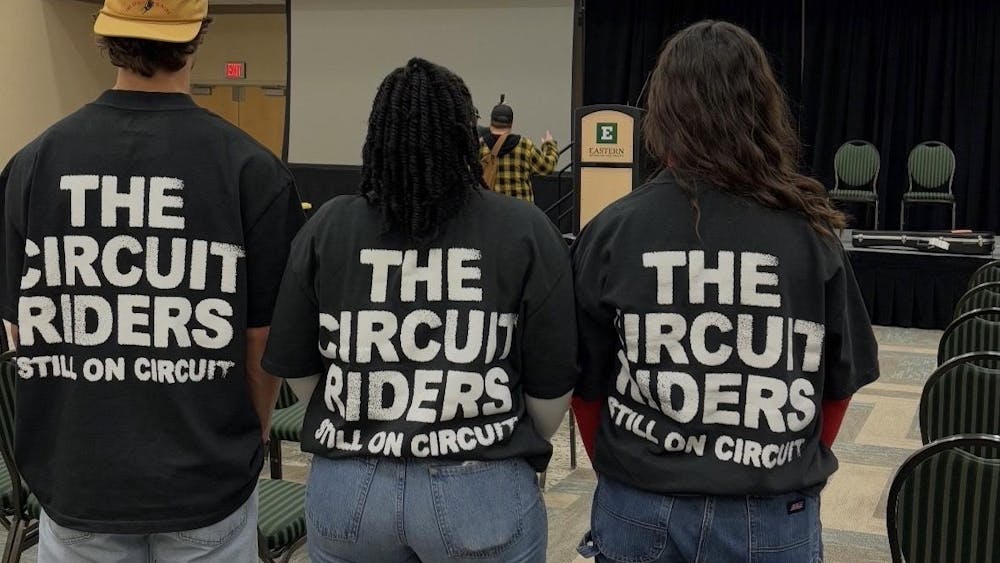Immigration is one of those problems with a million easy answers that nobody likes and only a couple everybody can live with. Over the last five years, we’ve seen the debate flare up and cool off, but it has never burned quite as hot as it did when Arizona passed a controversial law last year.
Some recent reactions to the ever-changing immigration question include a series of bills that seek to end birthright citizenship. Not all of these proposals are identical, but the shared theme is some combination of legislation and a Constitutional amendment that requires children born in this country to have at least one parent be an American citizen to qualify for citizenship.
Generally, as strange as it may sound, this idea is coming from a good place. The supporters of these proposals think revoking birthright citizenship will prevent illegal immigrants from crossing the border to have “anchor babies.”
Perhaps they’re right. Maybe reworking the definition of citizenship will keep some immigrants from coming to America illegally, but it certainly isn’t a complete solution to the problem.
It is, however, a fundamentally un-American idea, even if the lawmakers’ hearts are in the right place.
The idea is so un-American, because the only thing that makes us Americans is where we were born. American is not an ethnicity, it’s not a nationality, it’s an idea.
We’re Americans, not because of who our ancestors were, but in spite of who they were. We’re anything but a homogenous population. And this isn’t about black and white, it’s about British and German and Russian and Portuguese.
You’re an American because you were born here, not because of who your parents were. America was founded on an idea, one that has lit the world for two centuries, not on the concept that we have shared heritage.
This idea is affixed onto the soul of the nation and copied onto our money for good measure. E Pluribus Unum – out of many, we are one.
It doesn’t matter where you came from, it doesn’t matter who your family used to be, if you are born in this country, you are one of us. You are an American.
It’s a simple belief, but one we forget too easily. What unites us as a country is not our language or our religion or our ancestry; it’s that our families all came to this land looking for a better life.
Anchor Babies shouldn’t just be given citizenship; they should be an example of citizenship. Their parents want them to be Americans so badly they’ll cross a desert just to make sure their son or daughter gets to grow up in this country.
We ought to welcome everyone. Our doors should be wide open, and we should tell the people of the world if you want to be an American, and if you want your children and their children to be Americans, we’d be happy to have you.
Too often we forget we used to be a place like that. Now, we’re worried about terrorism and job competition. We became so sensitive to the huddle masses we used to champion.
We’re concerned that opening our doors to new people will rob us of who we are, but opening our doors is who we are. Our identity is based on that diversity.
People come here for a better life. Our ancestors did. We shouldn’t hang up a “No Vacancy” sign for the people who want to start a new life in America just like our families did.
This doesn’t mean we should grant amnesty to those who are already here illegally, because we’re nothing if not a nation of laws. There should be consequences for those who came here illegally, but the children born here to illegal parents are our brothers and sisters. They are Americans just like you and me.
To the rest of the world and those wishing to come ashore legally, we should be welcoming. This country is great, because it was founded on the backs of people who came together for a purpose. It didn’t matter where they came from, it mattered why they were here.
And they were here for a better life, just like the people who are coming today. There is no difference between the Irish family that came in 1850 and the Guatemalan family that came in 2004.
We shouldn’t run from that, we should embrace that. Anyone who wants to be one of us should be welcomed in and praised for sharing the dream that brought our forefathers here in the first place.
They’re coming here, because we’re a place of great opportunity and because they want their children and grandchildren to hold their heads up high and say, “I am an American.” We should let them.








